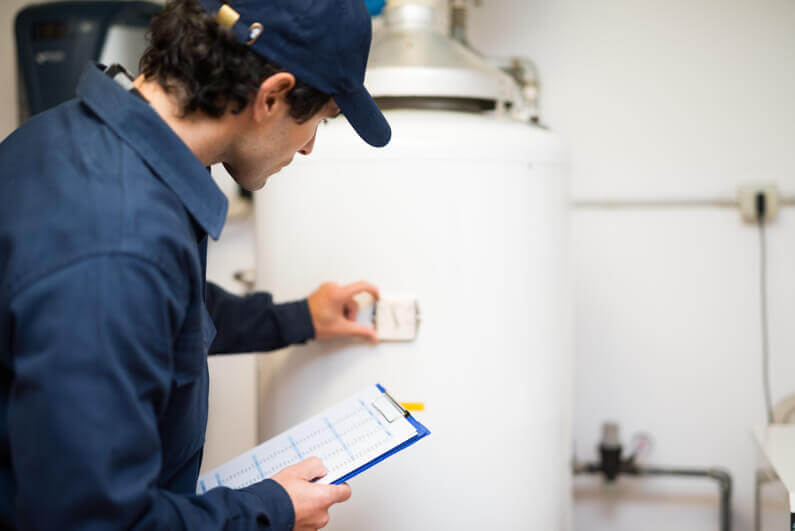
Are you thinking about upgrading your water heater?
Before replacing your water tank like-for-like, make sure your research all your options. Tankless water heaters are growing in popularity and might be the perfect fit for your home.
Read on for our guide to tankless water heater pros and cons.
The ProsHere we’ll look at the pros tankless water heaters bring to the table.
Cost and Energy SavingsThe biggest advantage of tankless water heaters is their energy efficiency. In the long-run, they’ll be able to save you money.
A tanked water heater uses energy 24/7 to maintain the temperature. Tankless heaters will heat water when you need it. It’s estimated that a tankless water heater will save a family of 4 over $1,500 over its lifetime.
You can expect a tank-based water heater to last about 8-12 years. Tankless water heaters have the ability to last over 20 though.
If you’ve found your ‘forever’ home and don’t plan on moving again for a while, consider the investment. You won’t need to replace your water heater for a long time and it’ll save you money!
Hot Water on TapWe all know what it’s like to fight over who gets the shower first. Whoever draws the short straw and goes last is often left facing a chilly time of it. With tankless water heaters, this isn’t a problem.
Tankless water heaters are able to provide endless hot water on demand. They work by heating cold water. In effect, this means you could shower for 2 hours straight and never run out of hot water.
More Space EfficientTanks can take up a lot of space, and space is often at a premium these days. Tankless water heaters take up much less space, which is a great option for when space is precious.
A 40-gallon tank heater is between 54-60 inches tall and 20 inches in diameter. It’s often cylindrical in shape. A standard tankless unit is only 27 inches tall and 18 inches in diameter. It’s rectangular in shape.
A tank unit takes up space and will often need to go in the basement. You can mount a tankless unit on the wall, making it ideal to fit in most closets.
Less Chance of Leaking and FloodingOver time, deposits can form and build up inside the tank. This can cause corrosion and even leaks. As tankless heaters don’t have a tank, the danger of flooding or leaks is reduced.
This doesn’t mean they’re immune to risks as they can have problems that could [cause leaking]. The chance of it leading to a major flood causing significant damage is lower though.
No ExplosionsIf tanks clog up, the pressure in the system can build up. This can have explosive results. While they might be rare, explosions are a potentially devastating danger that tank-based water heaters pose.
As tankless water heaters have no tank, there is no chance of an explosion happening. They also allow you to have greater control over water temperature. This means hot water is less liked to scold.
The ConsNothing is perfect, unfortunately. So let’s take a look at the cons of tankless water heaters.
Higher Upfront CostThe biggest disadvantage of tankless water heaters is the higher initial cost. They’re more expensive, most often due to higher installation costs. They will often need rewiring to handle the extra load and/or a new vent pipe that’s needed.
They also haven’t been around as long as tank-style units which are more common – and thus cheaper. More professional contractors know how to install tank-style units, that lowers labor costs.
Water Temperature InconsistenciesIf more than one shower, tap, or appliance is running at the same time, tankless water heaters can’t always keep up. Depending on the size fo your water heater, the issue might only affect showers. But it could even happen when the dishwasher is on at the same time.
When looking for tankless heaters, pay attention to flow rate. This is the amount of water the unit can heat at a time. It’s measured in GMP or gallons per minute. The higher the GMP, the more water the tank can heat at one time.
Make sure you determine what size you and your family are going to need and buy appropriately. Tankless water heaters come in a variety of sizes to suit all levels of water usage. Just know that if you exceed the flow rate your water heater can cope with, you won’t have hot water.
Hard to Get Lukewarm TemperaturesA less well-known downside of tankless water heaters is that it can be difficult getting water to a lukewarm temperature. They need to have a certain amount of water flow before they will activate. As such, there is a gap between cold water and the coolest warm water when hot and cold mix.
No Power, No Hot WaterIf the power goes out, you’ll lose your hot water too. Even if you’re using a gas-powered tankless heater needs an electric panel to function. So no matter the type of tankless water heater, you’ll be out of luck if there is a power outage.
This is one area where tank-style units have a clear advantage. No matter the power source, the water stored in a water tank will be able to remain heated for several days.
It’s Important to Know Tankless Water Heater Pros and Cons Before CommittingSo there you have it, you now know the main tankless water heater pros and cons.
They are the perfect economical, space-friendly choice so long as you have a reliable electricity supply. And you don’t have a habit of using all your appliances at the same time. In the long-term, you can see huge savings and overall they pose far lower risks of flooding and explosions.
Now you know what type of water heater you’re looking for, contact us today to see how we at Eco1 Plumbing Miami can help!
